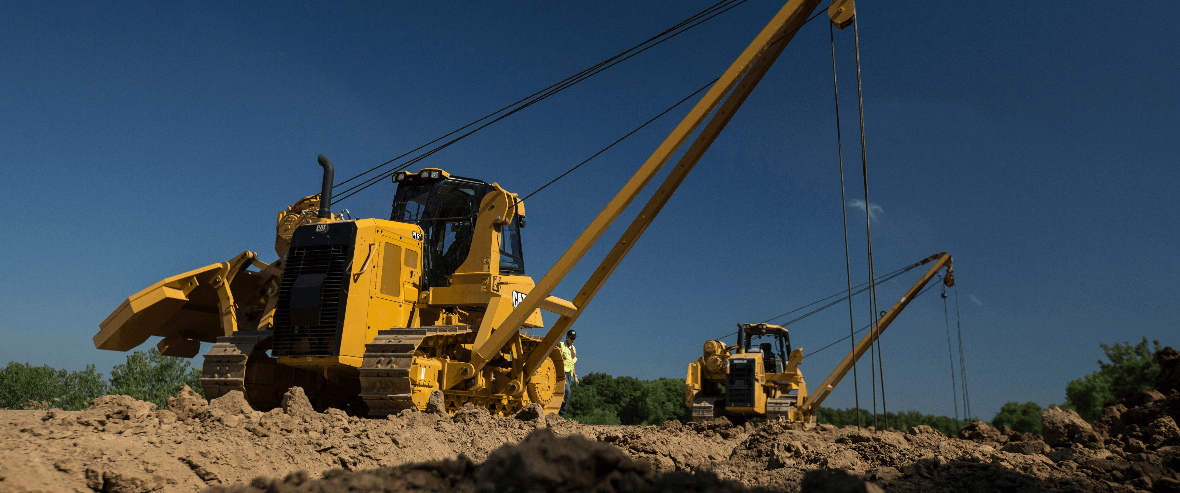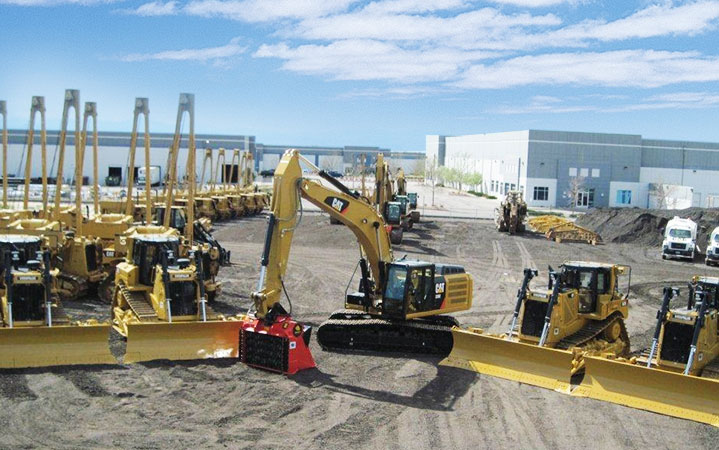Why Superior Oilfield Rentals is reshaping energy operations
Wiki Article
A Comprehensive Guide to the Numerous Kinds of Oil Field Equipment and Pipeline Equipment Available
The oil and gas sector counts greatly on specific devices for reliable extraction and transportation. Different types of machinery, from piercing rigs to tank, play vital roles in this intricate procedure. Each piece of equipment serves unique features that add to overall operational success. Understanding these elements is essential for any person associated with the industry. As the sector advances, so too do the innovations that sustain it. What improvements are on the horizon?
Drilling Rigs: The Foundation of Oil Expedition
Drilling rigs function as the necessary equipment in the domain name of oil exploration, enabling companies to gain access to hydrocarbon books buried deep underneath the Earth's surface area. These rigs come in different kinds, consisting of land rigs, offshore rigs, and mobile systems, each made to operate in specific environments. Furnished with sophisticated innovation, drilling rigs can pass through geological formations with accuracy, making certain efficient source extraction. The structural honesty and operational capacities of these rigs are important, as they have to hold up against severe problems and substantial pressures. The selection of a drilling rig impacts the total project cost and timeline, making it an important consideration for oil business seeking to maximize their exploration efforts and take full advantage of performance in their procedures.Pumps: Crucial for Liquid Motion
In the oil extraction procedure, the function of pumps is significant, helping with the movement of liquids throughout numerous stages of manufacturing. Pumps are essential for carrying crude oil, water, and other liquids from underground storage tanks to the surface area and then through pipelines to refineries. They are available in various kinds, including centrifugal, positive displacement, and completely submersible pumps, each serving particular purposes based on the liquid qualities and functional requirements. Centrifugal pumps are commonly utilized for their effectiveness in high-flow applications, while positive displacement pumps succeed in handling viscous liquids. The choice of pump impacts total effectiveness, operational security, and upkeep expenses. Proper option and upkeep of pumps are essential for optimizing production and minimizing downtime in oil area operations.Shutoffs: Managing Circulation and Pressure

Shutoffs play a vital function in managing the flow and stress of liquids within oil areas and pipes. Numerous types of valves offer distinctive applications, each made to fulfill specific features basic for reliable operation - Superior Oilfield Rentals oilfield. Recognizing the qualities and uses these valves is necessary for enhancing system performance and safety
Types of Valves
Crucial parts in oil field procedures, valves play a critical role in regulating the circulation and pressure of fluids within pipelines and devices. Various kinds of valves are utilized to meet the varied demands of oil and gas manufacturing. Common kinds include entrance valves, which give a straight-line circulation and minimal pressure drop; globe shutoffs, known for their strangling capacities; and sphere valves, identified for their fast on/off control. Additionally, check valves stop backflow, while butterfly shutoffs offer a light-weight option for regulating flow. Each shutoff type is created with particular products and setups to withstand the harsh problems typically discovered in oil areas, guaranteeing integrity and efficiency in operations. Understanding these types is crucial for effective system administration.Valve Applications and Functions
While various kinds of valves serve distinct purposes, their main applications focus on regulating flow and stress within oil and gas systems. Shutoffs such as entrance, globe, and sphere valves control liquid activity, making certain peak performance and safety and security. Gateway shutoffs are typically utilized for on/off control, supplying marginal circulation resistance. Globe shutoffs, on the various other hand, deal precise flow law, making them suitable for throttling applications. Sphere shutoffs are favored for their fast operation and limited sealing abilities. Additionally, stress safety valve are critical for preventing system overpressure, protecting equipment integrity. Overall, the suitable selection and application of shutoffs improve functional effectiveness, guaranteeing the reputable transport of oil and gas via pipes and processing centers.Compressors: Enhancing Gas Transportation
Compressors play an important duty in the reliable transportation of all-natural gas, making certain that it moves smoothly through pipes over fars away. These tools raise the pressure of gas, allowing it to overcome rubbing and elevation changes within the pipeline system. In addition, compressors assist in the balancing of supply and need, fitting changes in consumption and production prices. Numerous sorts of compressors are employed in the sector, consisting of centrifugal, reciprocating, and rotating screw compressors, each offering distinctive benefits based upon the operational requirements. Normal maintenance of these compressors is crucial to make best use of effectiveness and lessen downtime, ultimately adding to a reliable gas transport network. Their important feature highlights the importance of compressors in the overall oil and gas infrastructure.Storage Tanks: Safe and Effective Fluid Monitoring
Reliable transportation of gas relies upon different support group, one of which is the appropriate administration of tank. These containers play a vital function in safely consisting of fluids, making sure that functional efficiency is maintained while lessening ecological threats. Constructed from resilient products, they are designed to endure high stress and harsh components. Effectively sized and strategically located, storage tanks facilitate the smooth flow of gas and other liquids, protecting against traffic jams in supply chains. Regular maintenance and monitoring are essential to discover leakages or architectural problems, advertising safety and security and compliance with governing criteria. Inevitably, the website reliable monitoring of storage space containers is essential for the total honesty and integrity of the oil and gas sector's liquid handling systems.
Pipeline Systems: Facilities for Transportation
Pipeline systems function as the backbone of the oil and gas sector, promoting the reliable transportation of hydrocarbons over large distances. These systems are composed of different components, consisting of pipes, valves, pumps, and compressors, all diligently made to ensure seamless flow. The products made use of in pipeline building, usually steel or high-density polyethylene, are picked for longevity and resistance to deterioration. Pipeline networks can cover across land and water, connecting manufacturing websites to refineries and warehouse. In addition, progressed innovation enables real-time surveillance of flow prices and stress levels, improving operational effectiveness. The tactical positioning of these pipelines decreases environmental impact while making best use of source ease of access, consequently playing a vital duty in meeting energy needs globally.Security Equipment: Making Certain Worker and Environmental Defense
The operation of pipeline systems, while crucial for power transport, also offers considerable security challenges for workers and the setting. Safety equipment plays a substantial duty in reducing these threats. Personal safety devices (PPE) such as headgears, handwear covers, and non-slip shoes safeguards employees from physical dangers. Furthermore, gas detection systems keep track of for leakages, ensuring that damaging substances do not position a danger to workers or the surrounding environment. Emergency closure systems are necessary for promptly stopping procedures during a crisis, avoiding prospective catastrophes. Spill control products, consisting of absorbents and obstacles, are basic for lessening ecological impact. In general, investing in all-encompassing safety tools is important for preserving functional stability and securing both workers and the environment in the oil and gas sector.
Frequently Asked Questions
Exactly how Do I Choose the Right Oil Field Equipment for My Job?
Picking the appropriate oil area equipment involves assessing job specs, spending plan restraints, and functional needs. Think about variables such as equipment reliability, compatibility with existing systems, and the provider's track record to ensure peak efficiency and safety and security.What Are the Upkeep Needs for Oil Field Equipment?
Upkeep demands for oil area tools consist of routine evaluations, lubrication, and timely repair work. Operators ought to also stick to producer guidelines, display efficiency metrics, and assurance compliance with safety and security policies to boost longevity and performance.
How Can I Make Sure Conformity With Environmental Rules?
To assure conformity with ecological laws, companies should conduct routine audits, execute finest methods, purchase training, preserve proper paperwork, and stay updated on regulations (Superior Oilfield pipeline equipment rentals). Collaboration with environmental firms can additionally improve adherence to policiesWhat Is the Average Life Expectancy of Pipeline Equipment?
The average life-span of pipeline tools commonly varies from 20 to 50 years, depending on variables such as worldly high quality, environmental problems, and maintenance practices. Regular inspections can greatly affect long life and operational efficiency.Just how Do I Securely Carry Oil Field Equipment to Remote Locations?
Carrying oil field tools to remote places requires mindful preparation, including path assessment, securing authorizations, utilizing suitable vehicles, and making certain security protocols are followed. Proper training and interaction among staffs are necessary for successful transportation.Report this wiki page